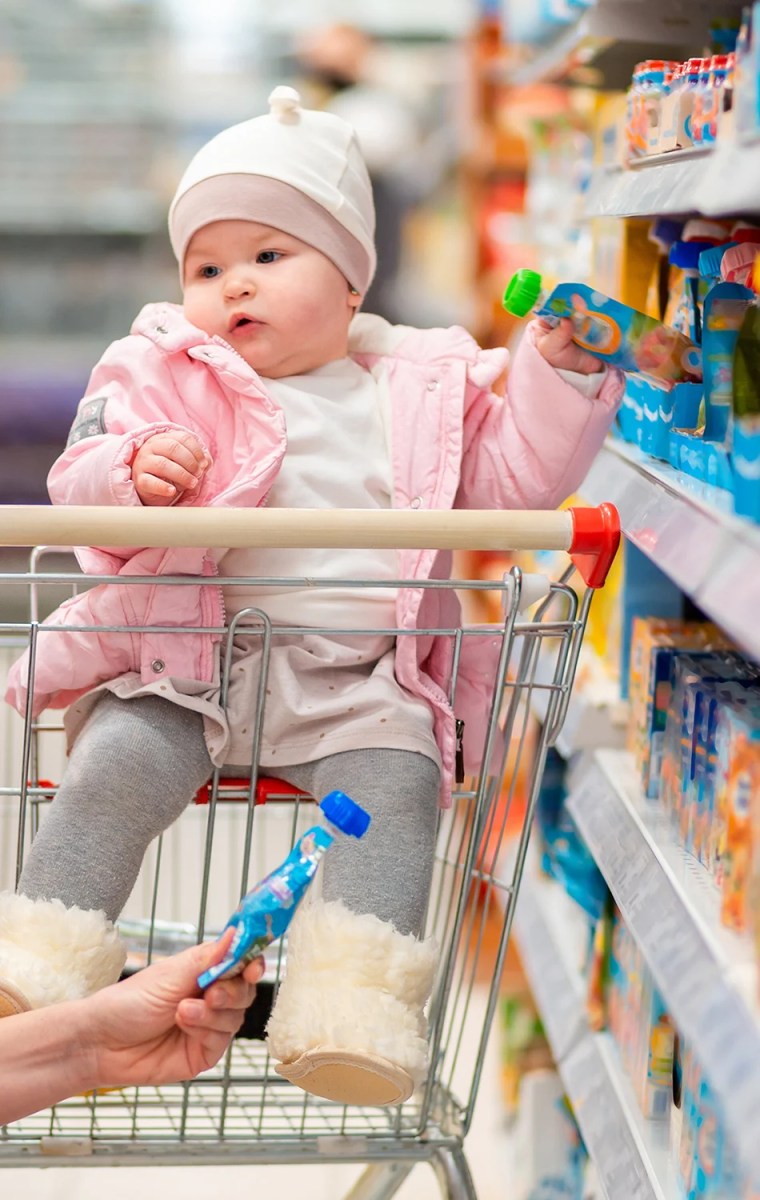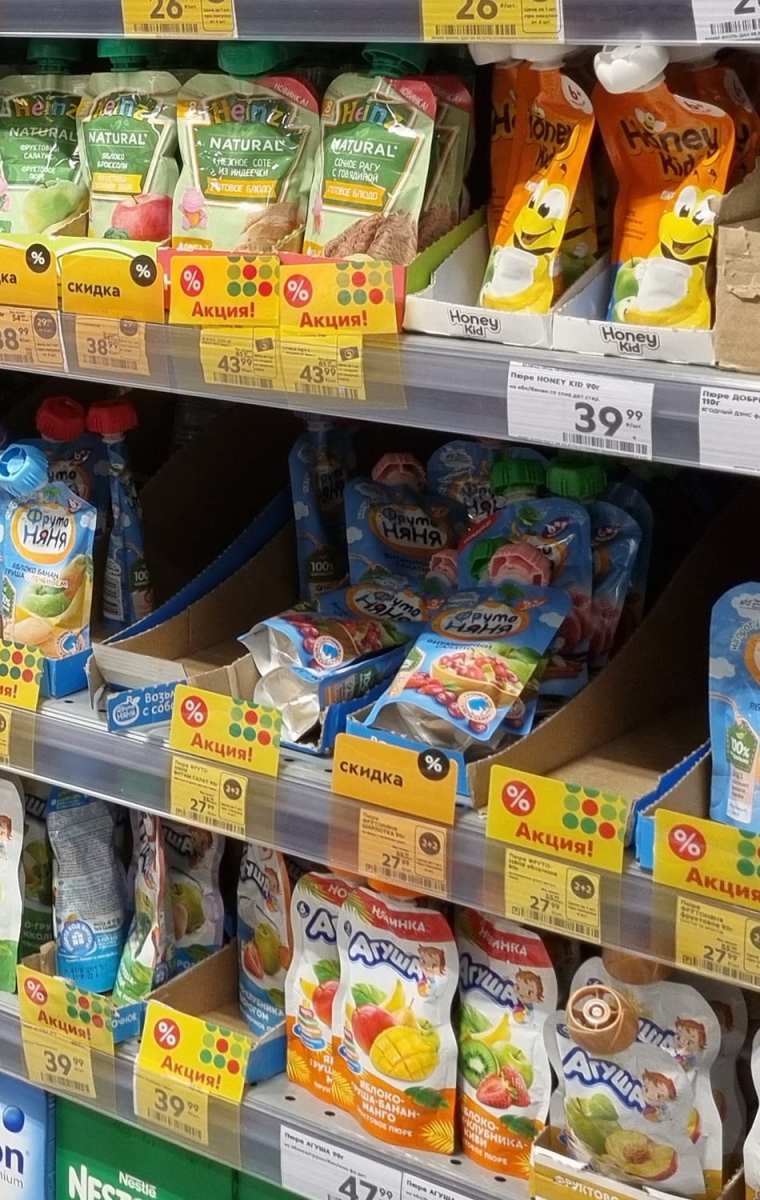Your cart is currently empty!
The Problem with Baby Food Pouches

Here’s What You Need To Know: Squeeze Cheeks, Not Pouches Baby-food pouches have become increasingly popular in the last decade and for decent reasons: they’re portable, don’t need refrigeration, and make it easier to keep the messy eating at bay. The New York Times recently reported that global revenue from baby food pouches grew tenfold…
Here’s What You Need To Know:
- Babies already know how to suck. They need to learn how to chew.
- Pouches interfere with your child’s motor and speech development.
- Babies learn through play and touch, which is why messy self feeding is important.
- Pouches are over blended, which may turn your child into a picky eater.
- Pouches are high in sugar and low in fiber.
Squeeze Cheeks, Not Pouches
Baby-food pouches have become increasingly popular in the last decade and for decent reasons: they’re portable, don’t need refrigeration, and make it easier to keep the messy eating at bay. The New York Times recently reported that global revenue from baby food pouches grew tenfold between 2010 and 2017 — from $16 million to $160.8 million.
Everything is fine in moderation, but new parents should know that this temporary fix can lead to other issues down the line. Below are a couple reasons to keep pouch use to a minimum.




They interfere with your child’s development
Chewing, swallowing, and using a spoon all help develop fine motor skills. Spoon feeding is also crucial for speech development. Babies strengthen their mouth muscles by closing their lips over a spoon and moving food into the back of their mouth.
Your Baby “Zones Out”
With a pouch, your child is more prone to distracted eating (eating while walking around). They are also more likely to stay clean. While both sound like bonuses for exhausted parents, ‘meaningful messes’ are important for developing motor skills and minds. Babies start to understand their world through play and touch. To understand what something is, children need to have a tactile experience. That includes smearing their food… everywhere.
Creates Picky Eaters
With pouches, children cannot tell the difference between flavors or textures. They can turn your baby into a picky eater that avoids fresh vegetables.
High in Sugar and Low in Fiber
A balanced fruit-to-fiber ratio is an important factor when choosing baby food. A study of 703 pouches showed they had a median of 11 grams of sugar per serving and 58% had added sugars.
Summary
Real food offers babies the chance to explore colors, textures, and shapes – all important factors in sensory development.
Save squeeze pouches for times that you are on the go or traveling.
Sources
- Beauregard JL, Bates M, Cogswell ME, Nelson JM, Hamner HC. Nutrient Content of Squeeze Pouch Foods for Infants and Toddlers Sold in the United States in 2015. Nutrients. 2019 Jul 23;11(7):1689. doi: 10.3390/nu11071689. PMID: 31340487; PMCID: PMC6682959.











